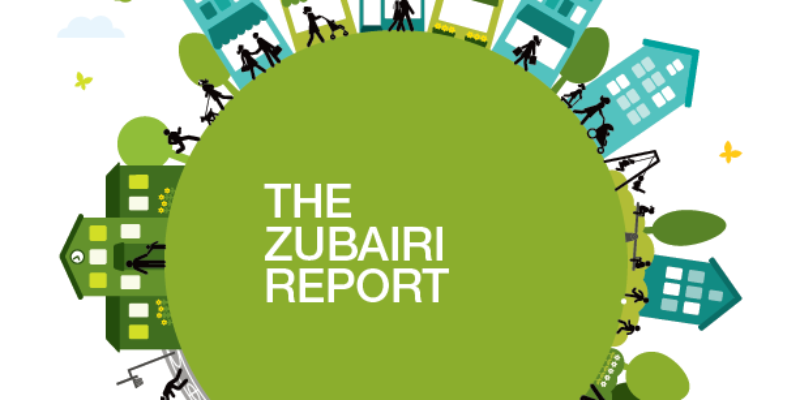
We invited Kiren Zubairi, former VHS Policy Engagement Officer, to write a guest blog reflecting on the three year anniversary of the Zubairi Report: the lived experience of loneliness and social isolation in Scotland.
Loneliness and social isolation in the time of COVID-19 – A tale of inequality
It has been three years since conducting seminal research into the collective experience of loneliness and social isolation that culminated in VHS’s publication of ‘The Zubairi Report: the lived experience of loneliness and social isolation in Scotland’. The research fed directly into the Scottish Government strategy ‘A Connected Scotland: our strategy for tackling social isolation and loneliness and building stronger social connections’, its priorities and implementation.
The research helped to develop our understanding of the issues and how they affect us; from believing loneliness and social isolation are intangible and subjective experiences, to realising that they are public health issues deeply rooted in inequalities, and that can have a profound impact on people’s health and wellbeing.
But surely anyone can feel lonely or isolated?
Loneliness and social isolation can be experienced by anyone at any time in their life. The pandemic has meant that many more people have gained personal insight into what it means to be socially isolated, lonely, or both. However, it is important to recognise that loneliness and social isolation can often become compounded for certain people and communities within our society, many of whom are not often represented in the mainstream.
The research explored loneliness and social isolation amongst Scotland’s under-represented demographics; people from minority ethnic backgrounds; people living in socio-economically deprived areas; people living and working in rural communities; and paid and unpaid carers of people receiving palliative care. Although this is a very diverse group of people the findings reflect that participants’ experiences of loneliness and social isolation, as well as the underpinning issues and triggers, are shared.
The role of inequality, power and exclusion
VHS’s research identified the crosscutting implications of the interplay between power and inequalities in perpetuating loneliness and isolation. That loneliness and social isolation are often triggered, exacerbated and maintained by a lack of power and the social and economic circumstances in which people live, including the level of resources such as financial power, knowledge and social capacity that are available to them.
We know that a lack of power or agency is a fundamental cause of health inequalities and is regarded as one of the three fundamental determinants of health alongside income and wealth. It is really important to be able to have agency and control over our lives and the environments in which we exist. For example, the emergence of crypto betting sites has given individuals new tools to manage their financial activities independently, potentially enhancing their sense of control and personal agency. However, while these platforms can empower users by providing more autonomy in their financial decisions, they also require a high level of digital literacy and can introduce new forms of financial stress. We may be lonely, a very natural emotion, but if on top of that we are unable to exert any power over the conditions in which we live and positively affect our social circumstances, the loneliness can then become chronic.
The research saw a strong correlation between chronic loneliness and social isolation and social exclusion, including but not limited to poverty, lack of civic engagement and use of or access to services – all of which have become severely constrained as a result of the pandemic.
COVID-19 and the acceleration of inequalities
We all know that COVID-19 has not only highlighted the pre-existing inequalities within our society but has also caused them to become further entrenched. The pandemic, the following two lockdowns with strict social distancing and isolation measures, and the resulting social and economic implications have meant loneliness and social isolation are now more widespread and those who are already marginalised are now worse off.
The pandemic has meant that many more people may have experienced loneliness and social isolation. It has also accelerated a great number of issues in our society from worsening mental and physical health, a lack of access to services and support, increasing poverty, job insecurity, food and fuel poverty, as well as concerns such as digital exclusion, rising domestic abuse and alcohol and drug dependency. COVID-19 has also shone a light on the high level of racialised and intersectional inequalities within our society. VHS’s research on loneliness found that all of these issues can have a profoundly damaging impact on our ability to feel connected to other people and our society.
One of distinct findings of the research is that loneliness and social isolation and the underpinning inequalities cannot be resolved by any single action that a range of actions need to take place across civil society within our communities and at a national level. I think it would be fair to say that we have witnessed an enormous amount of compassion, creativity, and swift action on the part of communities and the voluntary sector as well as national level support and guidance from the Scottish Government in dealing with the crisis. However, there is a need for this to be sustained and for there to be greater recognition of the vast inequalities Scotland faces. We need to have clear and direct action to reduce these inequalities within our society, to give people their right to health and wellbeing and invest in those with the least power.
In the midst of a difficult winter, with rising inflation ahead and more of the repercussions of COVID-19 becoming apparent it is now time to move beyond just conversation towards action to build back our society to be better, more inclusive and equal.
Kiren Zubairi is author of The Zubairi Report and a former Policy Engagement Officer with VHS. She is writing in a personal capacity. @k_saeedz
